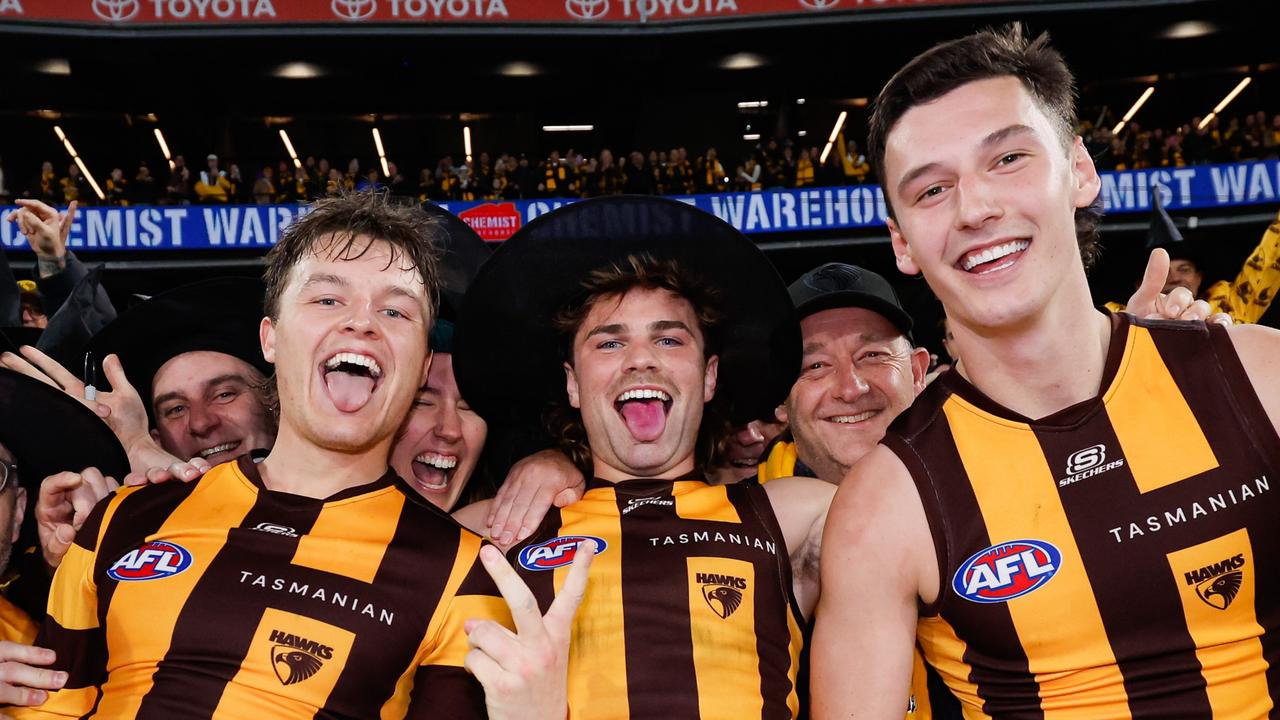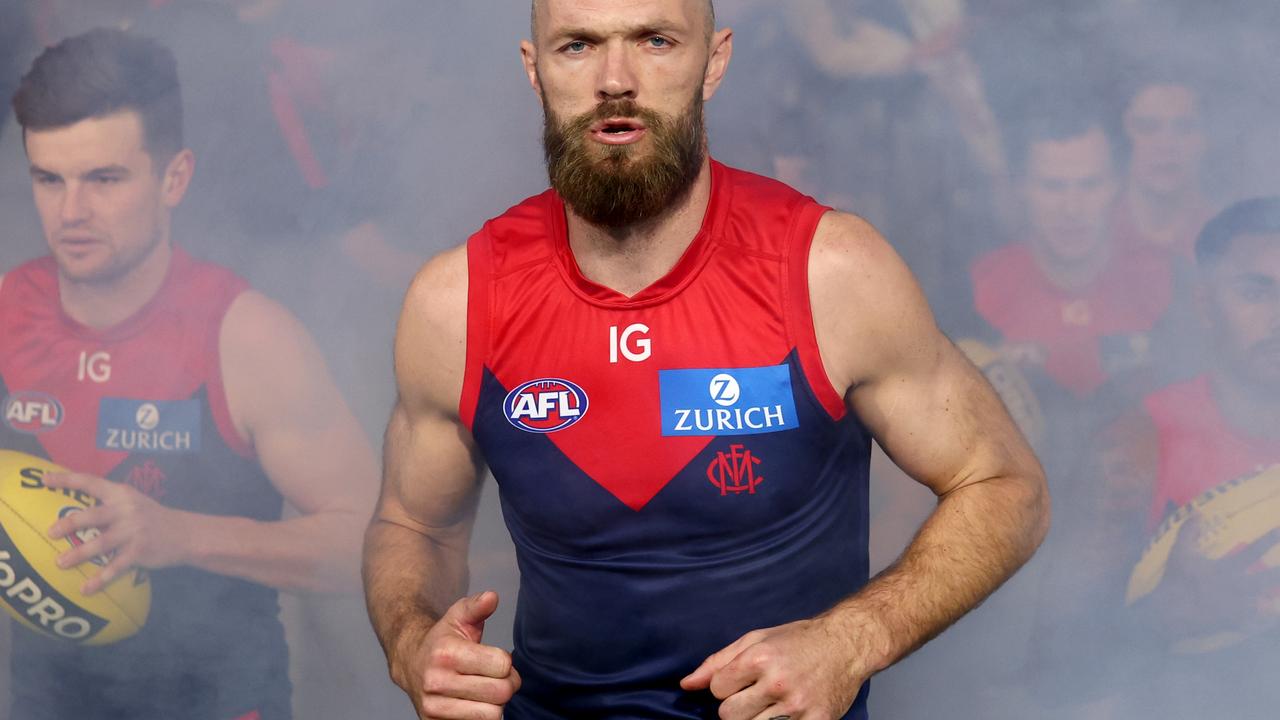Indigenous Sport Month: AFL stars open up on life and footy as Indigenous Australians
Wayne Milera has revealed an awful moment of racial bias while trying to secure a home loan, in an incident the Crows gun said left him ‘hurt and angry’.
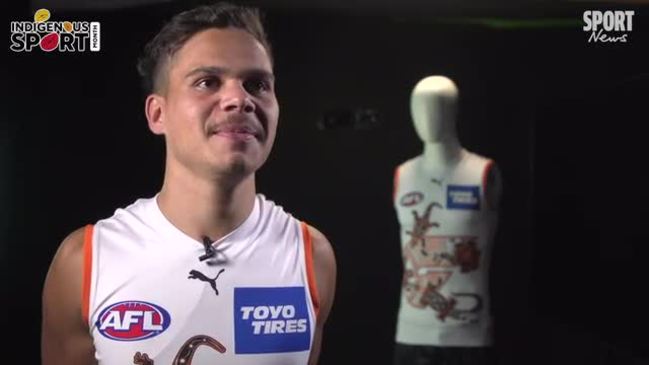
AFL
Don't miss out on the headlines from AFL. Followed categories will be added to My News.
As NewsCorp celebrates Indigenous Sport Month, our reporters headed out to speak to some of the game’s biggest Indigenous stars to talk about their careers and their lives outside of the game.
Speaking about everything from racism to their sporting heroes, the players opened up about everything that makes them tick.
For non-Victorian club profiles can be found below, while the Victorian clubs can be found here.
Watch the 2021 Toyota AFL Premiership Season. Every match of every round Live on Kayo. New to Kayo? Try 14-Days Free Now >
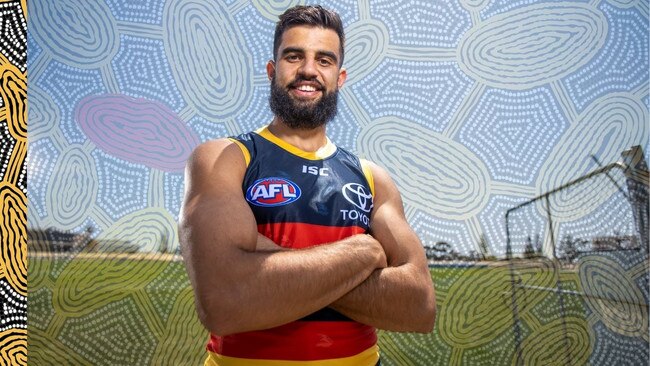
WAYNE MILERA — NARANGGA, WOTJOBALUK, GUNDITJMARA
What Indigenous Nation/s are you connected with?
On my dad’s side, I’m a Narangga man, which is on the Yorke Peninsula, and on my mum’s side her two nations are Wotjobaluk and Gunditjmara, in western Victoria.
What does your heritage/culture mean to you?
It’s really hard to put into words, but it’s good to have something that you can always come back to and something you can represent through your family. I sometimes sit back and think about how it was back in the day and how the old mob used to live, and live off the land. It’s good to have something you can always come back to. As an example, I remember going to Tasmania for the first time and sitting in the team bus and looking out at how green and hilly it was. And I was just thinking about when there were no roads here, no nothing and how my ancestors wold get around and they’d walk through dense bush. I always think about that, when I’m driving … sometimes you wish you could go back and just see how it was.
My favourite custom from my heritage is …
On my dad’s side down on the Yorke Peninsula, every year we have a fishing competition. Back in the day, they used to spear fish, so they carried this on, where on the Australia Day weekend, instead of celebrating Australia Day, they go and do this festival, called the Gynburra Festival, near Port Victoria. Every time you go, you end up sitting down and chatting to your Uncles and your Elders and you always hear stories about the fish they used to catch back in the day and how big they were. It’s always good to go there and reconnect with your country and get in the water and have some fun with your family.
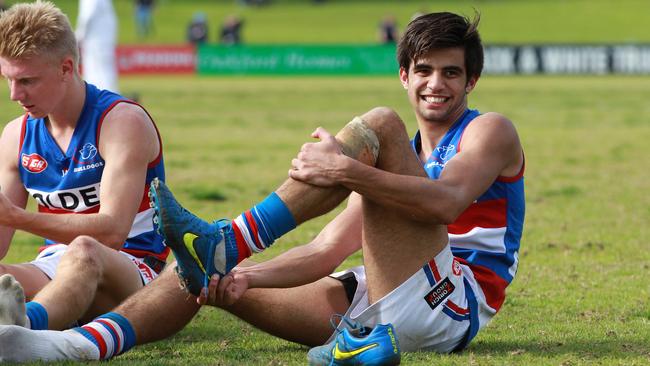
Something not many people know about me is …
One thing some people might not know is that growing up, I lived in two places beside from Adelaide, I’ve lived in Ballarat, which is where my mum was born, and then we spent maybe six months living in Darwin.
My earliest memory is …
I’d have to take it back to when we lived in Ballarat, when I was maybe about three or four, and I don’t have a specific memory, but I recall getting around and visiting family there.
One piece of advice I would give my teenage self …
Continue to work hard and strive for what you want to achieve in life. If you work hard, it will pay off at some stage. You may have some setbacks along the way, but if you work hard enough, you’ll achieve it.
The best advice I was ever given …
To be yourself and enjoy what you do.
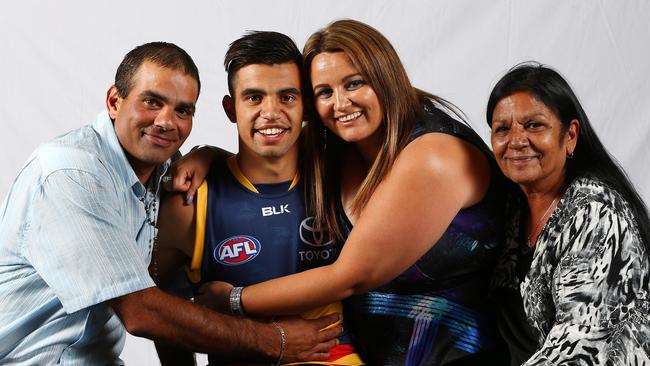
If I wasn’t in sport I would be …
I’d probably be doing some study at uni and I would have been trying to study something along the lines of PE teaching, or working with young Indigenous kids.
A common misconception made about me is …
Not sure on this one. I think I’m a bit of an open book, so I don’t know if there are many misconceptions about me. Maybe, it’s that I’m just a footballer.
When I cop abuse I …
I generally ignore it. On the footy field, I haven’t copped too much targeted abuse.
When people see me I hope they think …
That I’m a loving, respectful young man, who loves his family.
Family means …
Everything. I became a father in April, to my son, Carter and it’s been an incredible experience.
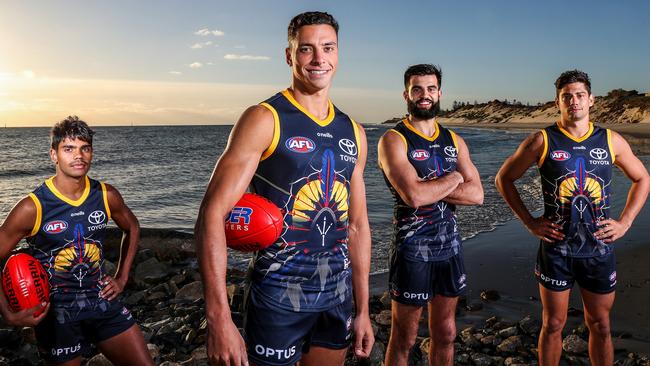
A word or phrase I use too much …
I reckon it’s probably er or um.
My weird sporting superstition is …
There’s one that I don’t do any more, but before I got drafted, when I’d do to my footy games, I used to stop at a servo and buy myself a yellow Gatorade and a packet of red frogs and I used to drink half of my Gatorade – I don’t know why I used to do this – and then eat maybe half a packet of the lollies. I don’t do that anymore because they’ve got lollies at the club. That was a weird one. But what I do now, is that my dad taught me to put my footy socks on by starting with them being inside-out, so you start from your foot and roll them up. So that’s how I put my footy socks on and I put my right one on, before my left foot.
My sporting hero is …
I’ve got two: Andrew McLeod and Adam Goodes. I loved the way they played and particularly with Adam Goodes, how he stood up for Aboriginal people and that impact he’s had on me, as a young, Indigenous athlete coming up, he started a movement and copped a lot of abuse for it.
Which sporting moment carried the most significance for you?
I have two games that stick out in my mind: before I was drafted, I played at Central Districts, and we made a semi-final and we played against the Port Magpies. It was a pretty close game and I think we ended up winning by four points, and it was one of the best wins I’d been a part of and I was playing with some blokes who I’d grown up with and playing in a SANFL final with them was pretty cool. Then, the win in the Showdown in 2018 when Josh Jenkins kicked a goal to put us in front with two minutes left on the clock. It was definitely a goal. That win was definitely one of my favourites in the AFL games I’ve played. They’re such good memories.
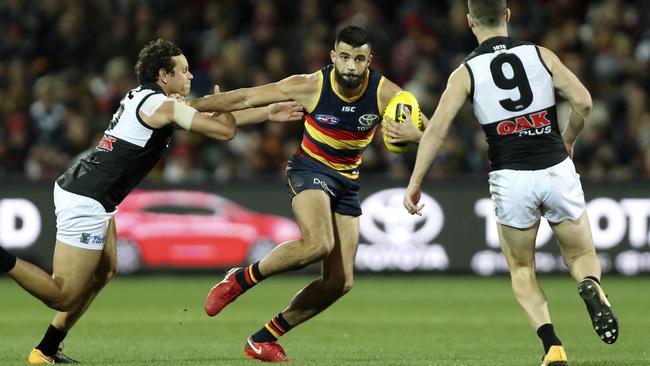
What’s it’s like being an Indigenous athlete today?
It’s no different to any other athlete, I imagine, that I find it pretty humbling to just know that I’m a role model, not only for young Indigenous people, but for anyone. I remember watching AFL footy and I looked up to a lot of the players, so it’s humbling knowing that people look up to you and I have younger cousins and my little nephews who idolise and I just hope it gives them encouragement and a drive that they can do that as well.
Have you encountered racism or unconscious bias against you?
Not really on the footy field. But there have been a couple of instances off it. It was only two years ago, and I went into a bank trying to discuss how to get a home loan and I needed to print out a statement and the lady in the bank, I asked her for it and she said to me: “Do you need this for your benefits, or something?” But I was organising a home loan to buy my first house. I remember going back into the car and my partner, Nina, was there and it was a weird feeling, because I was hurt and angry and I couldn’t believe she’d just said that. Even before that, she took quite a while to serve me, and then in the middle of serving me, someone else jumped in and she served them.
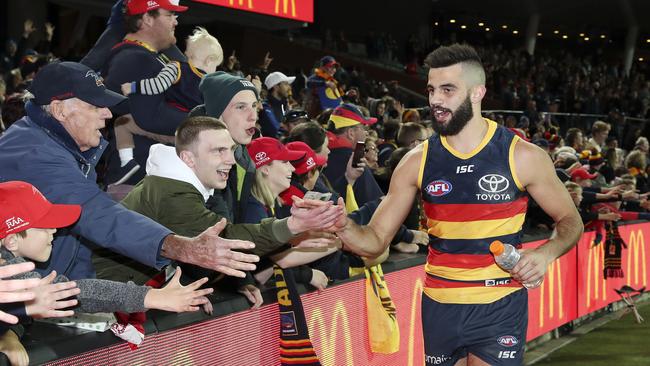
How do we improve support networks for Indigenous athletes coming through the ranks of professional sport?
We’ve got Jeremy Johncock as our Aboriginal liaison officer at the club and he does an awesome job. When I first came to the club, and I probably still am a bit, you’re very shy, you connect with Aboriginal people a lot better, and if there’s something bothering you and stuff, it’s easy to go and chat to Jeremy, which also takes a bit off the senior players as well. Having someone in the organisation to fight for you, or who has a voice for you, is so helpful. I think every sporting organisation should have one.
Reflections of your career highlights so far …
Draft night and AFL debut are probably my two so far. On draft night, I was in Adelaide and had a heap of my family with me and obviously it was something you dream of growing up, that was a pretty cool moment to have all my family with me on draft night (in 2015).
With my debut (in 2016), it’s the same: you always dream to play AFL footy and then to finally get your first game and it’s real. I played in Melbourne (against North Melbourne) and I had a lot of family drive over and it was cool because some of mum’s family from Victoria came as well.
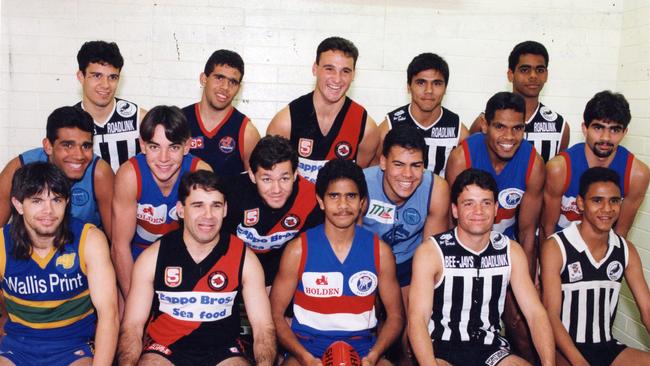
Who put you on your pathway …
My dad, Wayne Snr. I just remember going to his local footy games and every Saturday I remember sitting in the car and heading to wherever he was playing and carpooling with his mates and watching him play. He played reserves for Central Districts, but he never went on to play league or anything. I guess growing up, my first hope was to play AFL, but he drove me to play SANFL footy and then go on and play AFL.
Who is your inspiration …
My family in general is my inspiration to play footy and make them proud.
What is the key priority to improve player and leadership opportunities for the next generation of Indigenous athletes …
For me and a fair few people I went to school with, I found it hard talking up. I know for some people that just comes naturally, but maybe there needs to be more education around the fact that there are more than one way to be a leader, there are many different ways to be a leader.
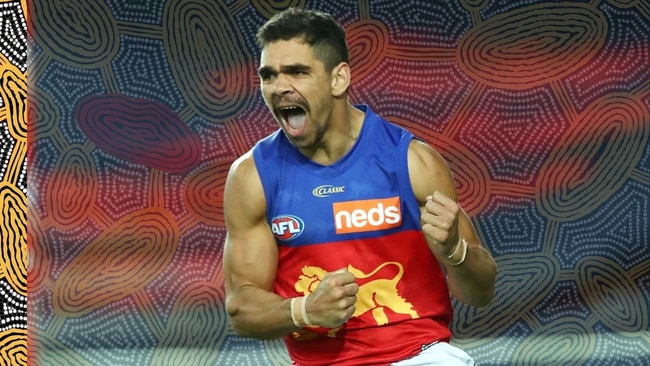
CHARLIE CAMERON — LARDIL-WAANYL
What Indigenous Nation/s are you connected with?
I’m from Mount Isa and Mornington Island. Mornington Island is the Lardil people and Mount Isa is the Waanyi people.
What does your heritage/culture mean to you?
It obviously means a lot and you obviously want to stay connected to your culture and your people. For me, it keeps me grounded and it’s always good to know where you’re from and who your people are. It means a lot to me playing in the AFL because you sort of become a role model for your people and younger kids in your community. My community, especially, has a lot of Indigenous kids and for them to see me here, I want to be a role model for them.
My favourite custom from my heritage is ...
My culture and my people always have dancing and cultural dancing. I love it. It keeps me connected to who you are and educates you about your culture.
Something not many people know about me is ...
I grew up on a small island, called Mornington Island. That’s where all of my family are right now. There’s not much there and probably only about 1000 people, mainly Indigenous people. I grew up there for much of my life.
My earliest memory is ...
Probably going fishing and camping with my family. It was something I loved to do as a kid and it’s something I always want to do when I go back. I haven’t been back for a while so I want to go up and go camping, fishing and hunting.
One piece of advice I would give my teenage self ...
Just have fun and enjoy yourself. There’s going to be challenges but just have fun.
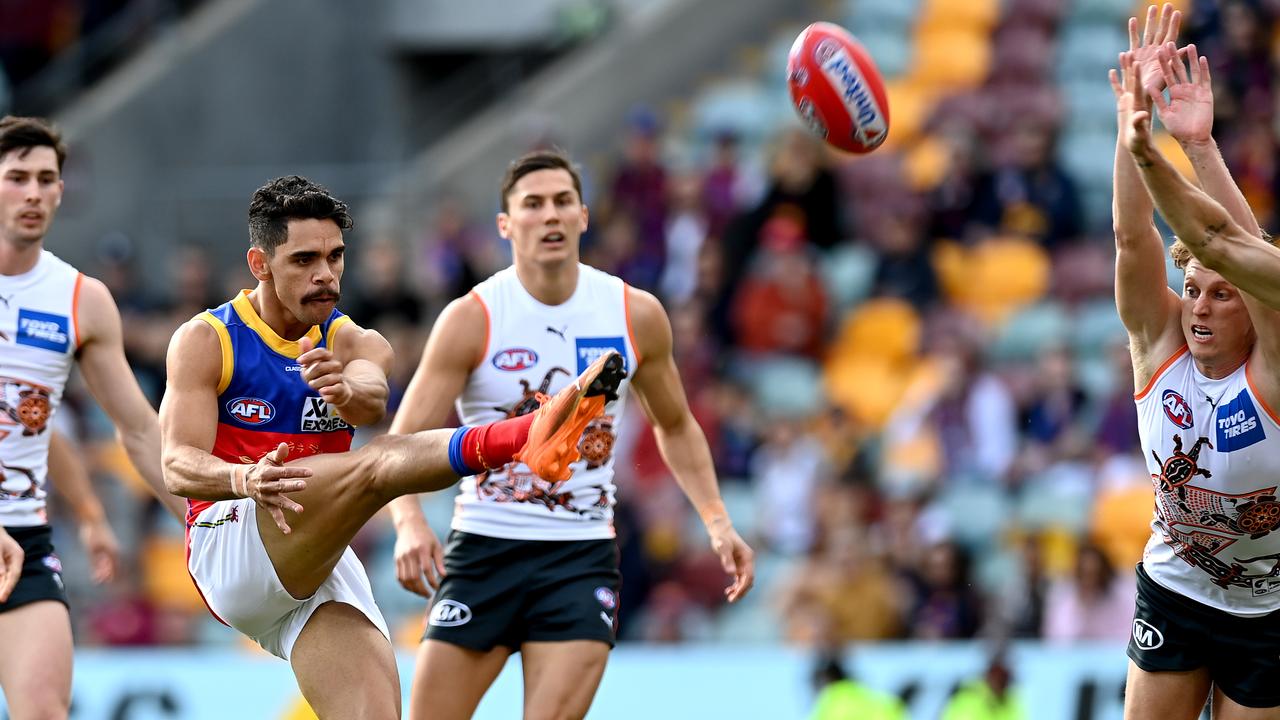
The best advice I was ever given ...
Respect my elders.
If I wasn’t in sport I would be ...
I was an apprentice mechanic before I was drafted so I’d still be a mechanic I think. I ended up doing two years of my apprenticeship before getting into footy.
A common misconception made about me is ...
Not sure really. Maybe carry on too much?
When I cop abuse I ...
I just laugh and move on. It doesn’t really faze me, unless it’s racial. If it’s just people having a go at you on Instagram or something, I just say I’m enjoying my life and can’t complain.
When people see me I hope they think ...
I want to try and give back by just smiling and waving to people. So hopefully they think I’m happy and enjoying my life.
Family means ...
It means a lot. They’ve helped me to get to where I am at the moment. It’s a big thing for me.
A word or phrase I use too much ...
“Obviously”
My weird sporting superstition is ...
I don’t really have any superstition. That stuff doesn’t really bother me.
My sporting hero is ...
(Rugby league legend) Greg Inglis. A few other NRL players like Cameron Munster and Latrell Mitchell, I look up to as well.
Which sporting moment carried the most significance for you?
Playing in an AFL Grand Final (for Adelaide). I haven’t had that opportunity in the last five years so hopefully I can get there again.
What’s it’s like being an Indigenous athlete today?
It means a lot actually. Young Indigenous kids sometimes don’t have the belief that they can get to where I am today. Seeing Indigenous role models, you want to be like them. I’m trying to set a good example and that’s what it means to me to be an Indigenous athlete today.
Have you encountered racism or unconscious bias against you in your career? Share an example if you are comfortable.
I don’t think so, no.
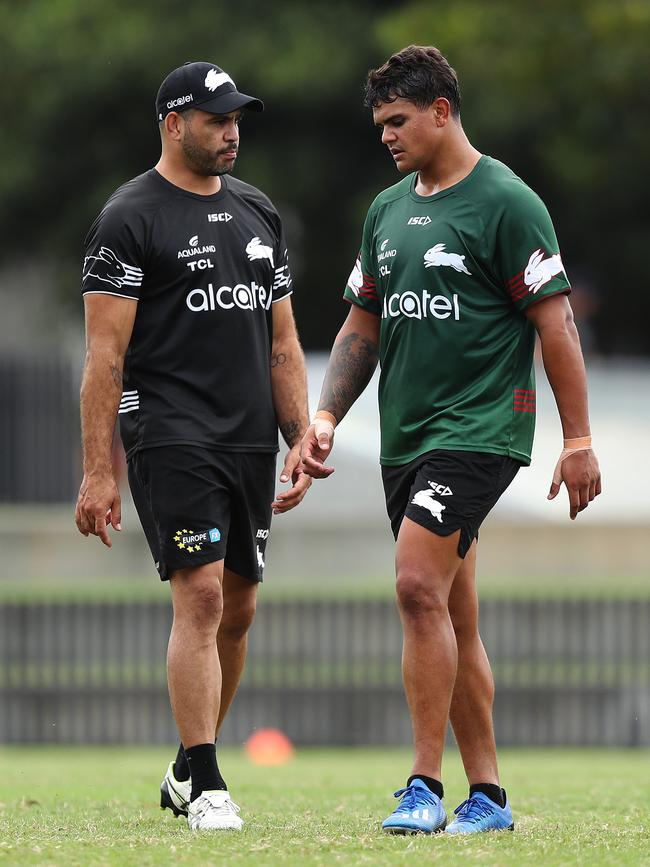
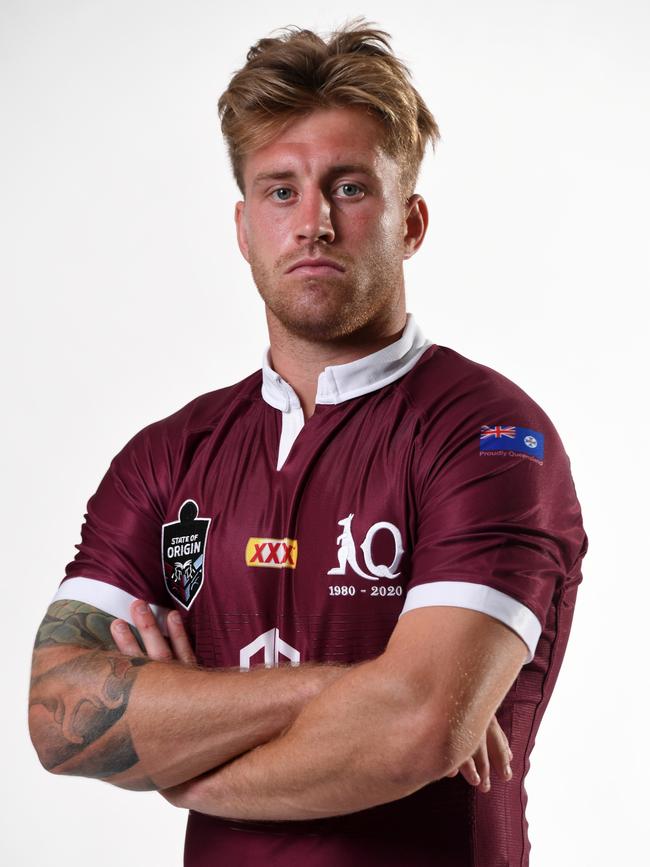
How do we improve support networks for Indigenous athletes coming through the ranks of professional sport?
Probably exposing them to real life teachings and that kind of stuff. It’s a lot to do with education as well.
Reflections of your career highlights ...
Playing in a Grand Final was definitely up there. It was probably the highlight of my life so far. The recent success here at the Lions is also pretty exciting.
Who put you on your pathway ...
My parents definitely. There’s been a few other people as well when I was living in Newman, WA which is 12 hours from Perth. I was working in the mines there. I got the opportunity to play in the WAFL and there’s a few people over there that helped me out.
Who is your inspiration ...
My mum and dad. My nanna as well. They’ve really taught me those family values.
What is the key priority to improve player and leadership opportunities for the next generation of Indigenous athletes ...
Just by having good role models and education for them. Just leading them on the right path, not necessarily to success but just a good pathway to a positive and good life. Obviously, where I’m from you can go down the path I was fortunate to go down and have people that helped me on that path but it can go the other way as well.
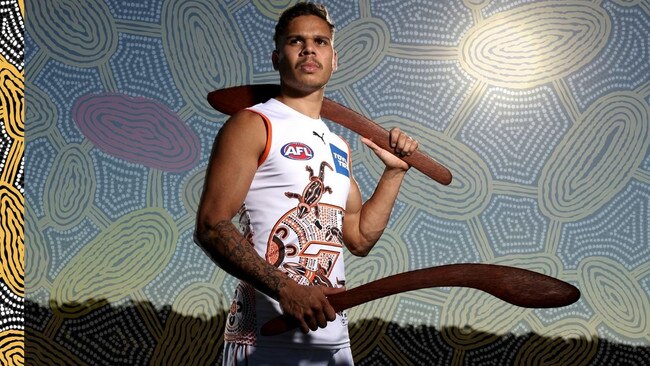
BOBBY HILL — WHADJUK-BALLARDONG NOONGAR
What Indigenous Nation/s are you connected with?
I’m a Whadjuk-Ballardong Noongar from Northam, which is 90km east of Perth, so I’m a WA boy.
What does your heritage/culture mean to you?
It means a lot, especially being an Aboriginal Indigenous man.
My favourite custom from my heritage is …
Family, and how close we are. We always go out hunting and there’s a fair bit that goes on when we’re out there. Us boys go out all day and bring the food back to have my aunties, my mum and nan finish off the day by cooking it. We hunt kangaroo and emus sometimes, but mainly kangaroo.
Something not a lot of people don’t know about me is …
I’ve got the nickname ‘Bobby’, but my real name is Ian. I got called Bob the Builder from my grandfather, who passed away last year, from when I was young watching Bob the Builder too many times. Only if I’m in trouble from mum (is when I’m called Ian).
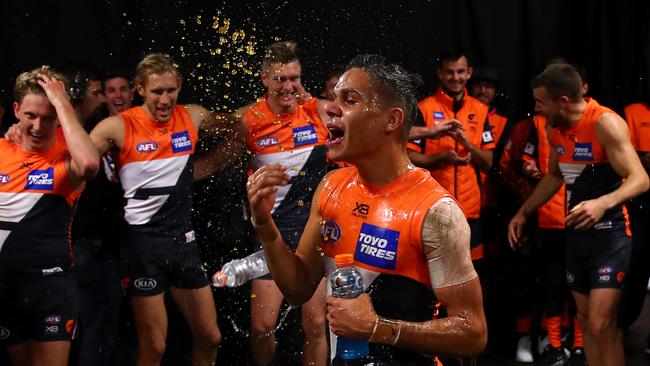
My earliest memory is …
Going to watch dad play (country) footy when I was younger, with my uncles and cousins around playing or on the sidelines watching.
One piece of advice I would give my teenage self is …
Listen in school (laughing). I always thought sport was the best thing, but if I went back – luckily I graduated – I’d hand my assignments in on time.
The best advice I was ever given was …
Probably just from my dad: “Always listen to your mother.”
If I wasn’t in sport I would be …
I maybe would have done a certificate in metal work or art.
A common misconception made about me is …
Nothing comes to mind.
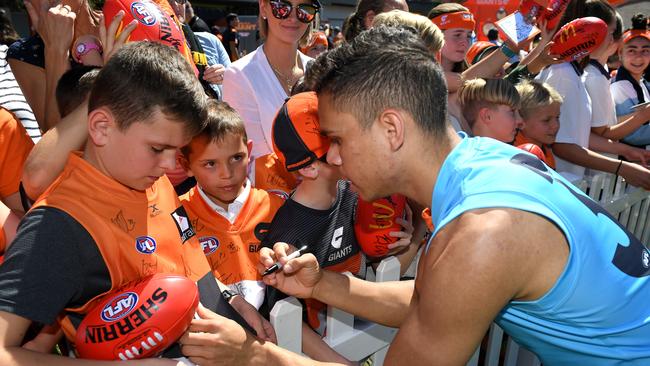
When I cop abuse I …
It just depends what abuse it is. If it’s a spray from the coach, you take it on board, but if it’s from someone else, I would speak my word. I had one (guy) after a game, and he keeps messaging, but I find it pretty funny – how much time they have to just keep going at you. It’s nothing too abusive, just stuff I can laugh about. Other than that, I just block them and laugh at them.
When people see me, I hope they think …
I’m a role model for non-Indigenous and Indigenous young kids and someone to look up to and idolise and who’s a good guy.
What does family mean to you?
Family means a lot to me, especially being from a family with a lot of cousins and everyone’s so close. At a young age, we did a lot with all my uncles and aunties, on both sides – mum and dad. I’ve got a heap of relatives in the AFL. Josh Hill, who played for Western Bulldogs and West Coast, Brad and Stephen (Hill) – one’s at the Saints, one at Freo – I had Gerald Ugle here at Giants and Sydney Stack at Richmond. Also, my uncle Leon Davis, who played at Collingwood.
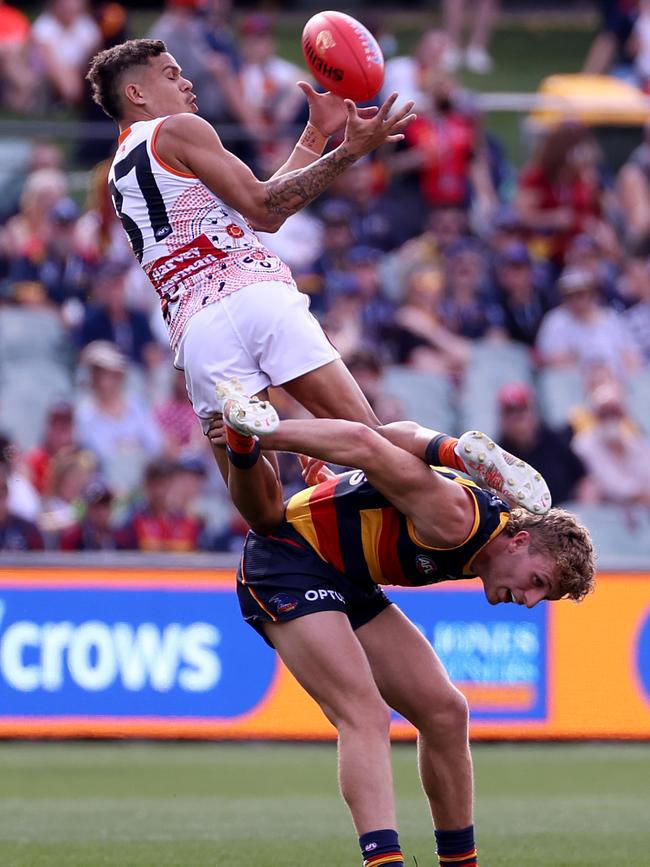
A word or phrase I use too much …
Probably ‘and’. (No full stops) I just get straight to it.
My weird sporting superstition is …
I always have to have my left side done before my right, so my left sock and foot, then my right sock and boot in every game. Since I was in Wesley College, I always wore the same red Speedos. They have to be red. I think I run fast in red, and if I don’t have them I probably won’t play.
My sporting hero is …
That’s a hard one, because there’s a lot. If it has to be a well-known sportsman then Adam Goodes, but if it’s someone I really looked up to, my dad. Sporting-wise, Adam Goodes and Cyril Rioli. I wear the No.37 here at the Giants because of Goodesy. They had great careers, and me being a young Indigenous kid myself, I always watched them on the TV and saw them dominate.
Which sporting moment carried the most significance for you?
Probably my first game. To get drafted was an achievement but to play my first game in my first year and to have my family there to support me, and all the boys here and everyone at the Giants, is something I’ll never forget and cherish for the rest of my life.
What’s it like being an Indigenous athlete today?
It’s a lot to take in. You have a lot of young Indigenous kids who look up to you, and also non-Indigenous as well, so to be an Indigenous player in 2020 is a big achievement and something I love.
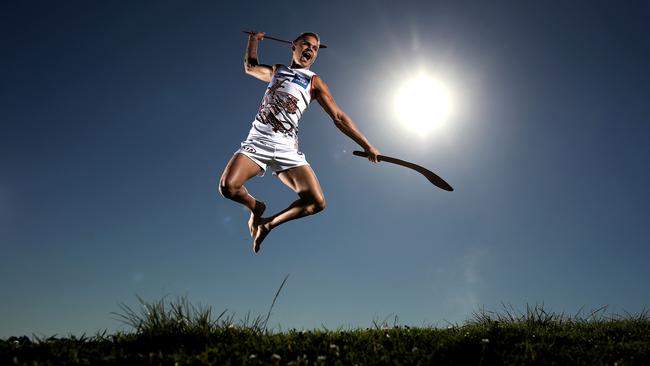
Have you encountered racism or unconscious bias against you in your career?
I haven’t but I know Eddie Betts and all the older boys (in the AFL) who went through it. It doesn’t only hurt them but it hurts the rest of us Indigenous boys, just knowing what they’re going through and thinking what they think of us. I haven’t had that experience but I don’t wish it upon anyone to go through that, so hopefully I don’t go through it either.
How do we improve support networks for Indigenous athletes coming through the ranks of professional sport?
I think teaching more about our culture. It doesn’t hurt to sit down and listen and know where we’re coming from and learning what we’re teaching you.
What are your reflections on your career highlights?
B.H: Probably the one where I should have got mark of the year (in 2020). The one where I got robbed for mark of the year. (wide grin) That’s the big one.
Who put you on your pathway?
Mum and dad. Dad worked his backside off to pay for a lot of fees and a pair of boots every week. I (also) had other family there to drive me down to trainings in Perth.
Who is your inspiration?
Just family. I wouldn’t be the man I am today and wouldn’t be where I am if it wasn’t for them.
What is the key priority to improve player and leadership opportunities for the next generation of Indigenous athletes?
Just pathways, like we’re doing now with the academies bringing more Indigenous kids in. Back home in WA, we’ve got the Kickstart Academy, Nicky Winmar carnivals. So just going around the right pathways and doing more stuff around Indigenous footy for young Indigenous kids.
More Coverage
Originally published as Indigenous Sport Month: AFL stars open up on life and footy as Indigenous Australians




